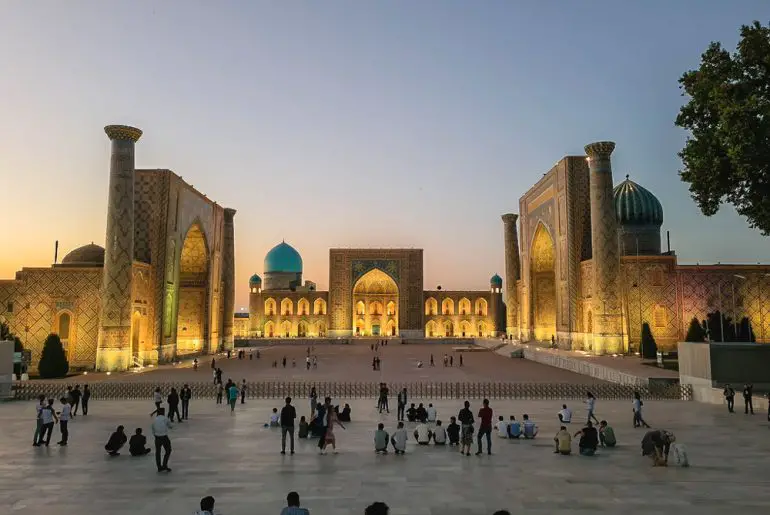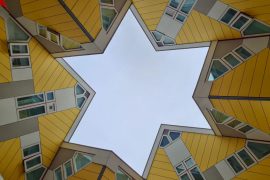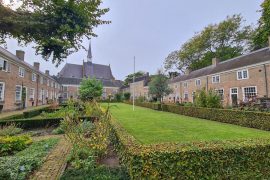Last Updated on 11.10.2023 by Iliyan
Thinking about spending 3 days in Samarkand? Great! In this post, I’ll share with you the perfect itinerary for 3 days in Samarkand, Uzbekistan. Samarkand is one of the ancient cities in Central Asia and is the second-largest city in Uzbekistan. The city is known for its rich history and magnificent architecture, located on the old Silk Road between China and the West. Samarkand is a must visit place, when in Uzbekistan, listed as “Samarkand – Crossroads of Cultures” in the UNESCO World Heritage.
In this Samarkand itinerary, you’ll find everything you need to know about the perfect itinerary for 3 days. Below is a list of the places to visit. All of these are included on this Samarkand itinerary.
Contents
- 1 Samarkand Itinerary
- 1.1 Registan
- 1.2 Ulugh Beg Madrasah
- 1.3 Sher-Dor Madrasah
- 1.4 Tilya-Kori Madrasah
- 1.5 Siyob Bazaar (Siab Bazaar)
- 1.6 Bibi-Khanym Mosque
- 1.7 Amir Timur Mausoleum Gur-e-Amir
- 1.8 Mausoleum Rukhabad
- 1.9 Hazrat Khizr Mosque
- 1.10 Shah-i-Zinda Necropolis Complex
- 1.11 Ulugh Beg Observatory
- 1.12 Take a day trip to Shakhrisabz
- 2 Is Samarkand Worth Visiting?
- 3 How many days do you need in Samarkand?
- 4 Best time to visit Samarkand
- 5 Where to stay in Samarkand?
Samarkand Itinerary
Registan
One of the most spectacular attractions in Samarkand is Registan. It is a picturesque square surrounded by three madrasas, all of them face the central square. The three madrasas are Islamic schools, each of them housed two stories of classrooms and dorms for students and professors. They were built between 15th and 17th century. From left to right, we have Ulugh Beg Madrasah, Tilya-Kori Madrasah, and Sher-Dor Madrasah.
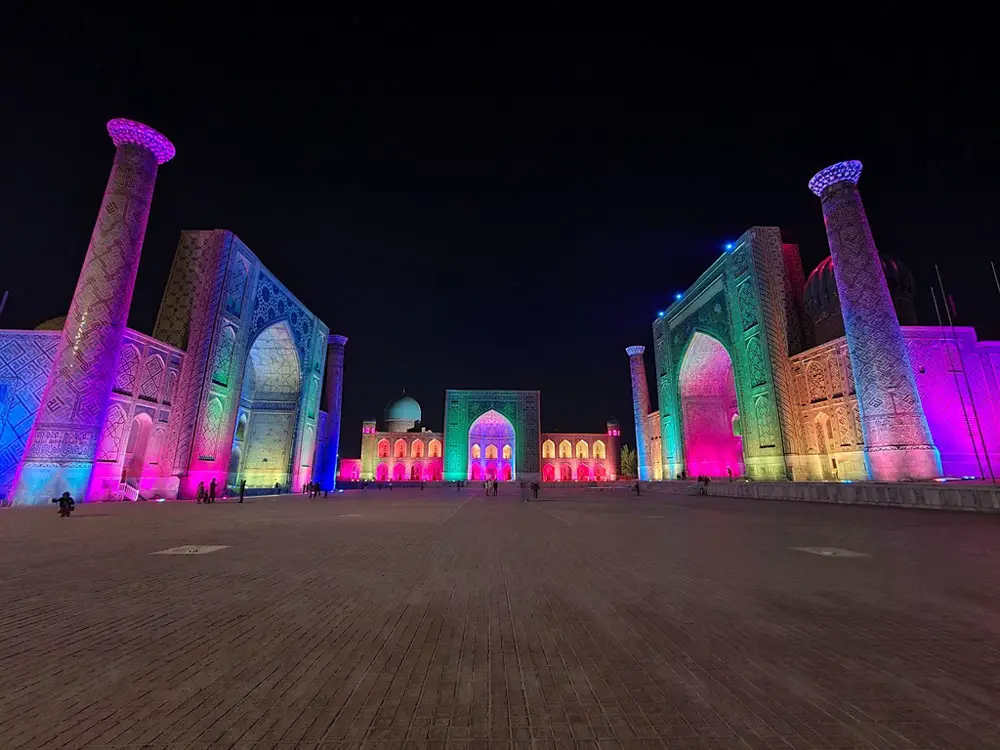
Registan was the heart of the Timurid dynasty. During that time, this square was used for royal proclamations, celebrations, and public executions.
Don’t miss the light and sound show in the evening at Registan.
Ulugh Beg Madrasah
The Ulugh Beg Madrasah is the oldest in Samarkand. It was build in 15th century during the Timurid Empire. It was a centre of learning and culture where the scientist and astronomer Ulug Beg gave lectures in mathematics and astronomy.
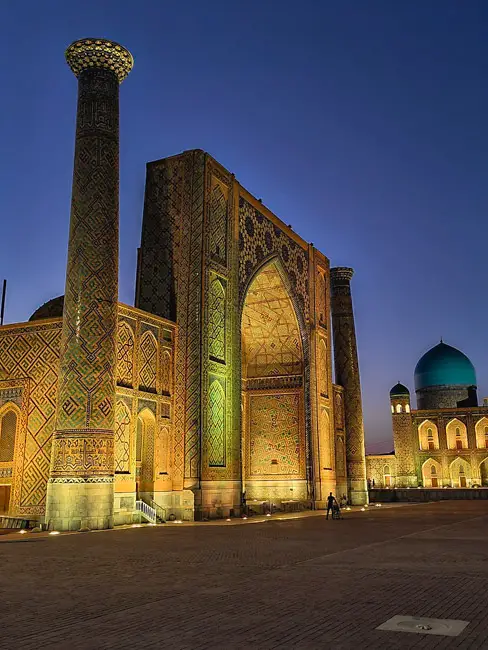
Sher-Dor Madrasah
Sher-Dor madrasah is part of the stunning Registan architectural ensemble. It was built in 17th century by the Shaybanids. The façade is decorated with two tigers chasing two deer, human faces, sun symbols, alongside with brilliant coloured tiles in beautiful patterns. According to Islamic architecture, it is impossible to depict animals or people in sacred places, but Sher-Dor madrasah has become an exception.
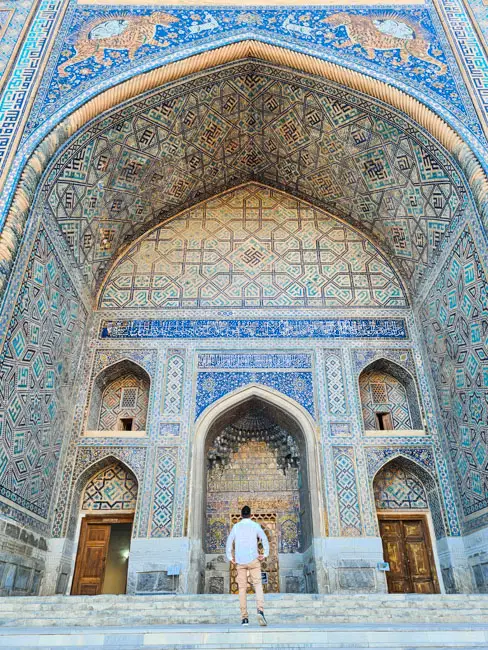
Tilya-Kori Madrasah
The Tilya-Kori Madrasah is the last of the three structures of the world-famous complex of Registan Square. It was built in 17th century by the Shaybanids. Its name means decorated in gold and almost every surface on the inside of the dome is gilded. The walls and ceiling of the mosque are covered in gold details. The effect of azure blue and gold leaf is just out of this world. Probably the most stunning interior of all the architecture found in Uzbekistan.
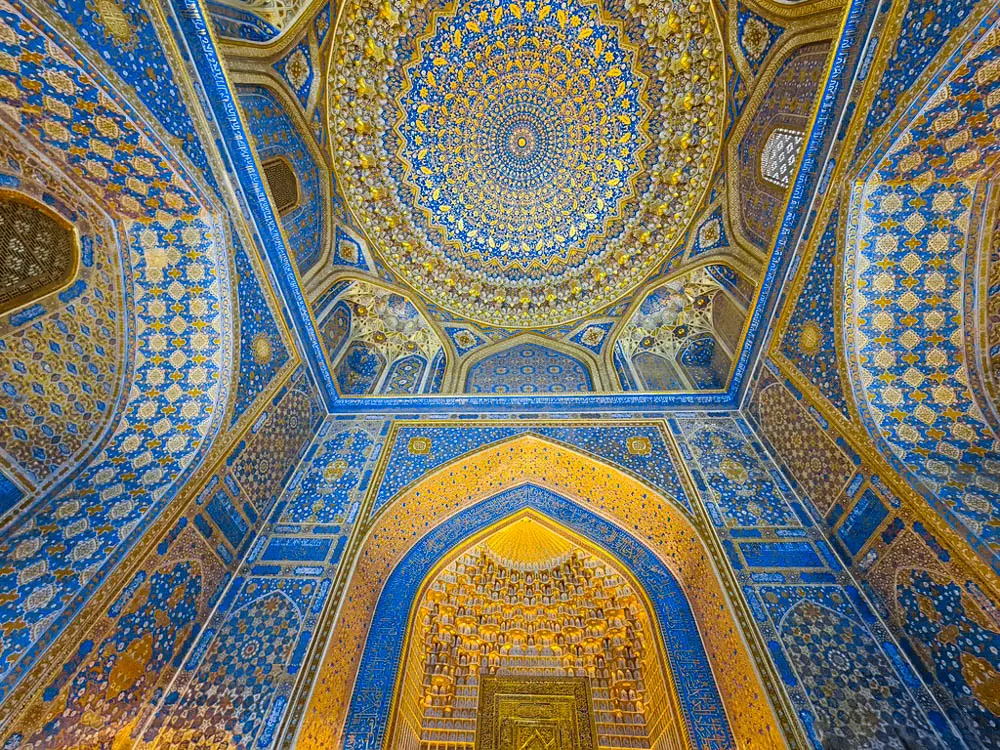
Siyob Bazaar (Siab Bazaar)
A visit to Samarkand would not be complete without a visit the Siyob Bazaar. This grand bazaar is the biggest and oldest in Samarkand. It is located right next to the Bibi-Khanym Mosque.
The Siyob Bazaar is mainly a food market. Here you will find fresh fruits, vegetables, sweets, nuts, spices, and traditional delicious breads. Many shops hand out samples, so don’t be afraid to try some goods. However, If you want to buy anything you will need to bargain.
Bibi-Khanym Mosque
The impressive Bibi-Khanym Mosque is one of the best places to visit in Samarkand, Uzbekistan. It is located directly in front of the Siyob Bazaar. In the 15th century, it was one of the biggest and most magnificent mosques in the world. According to the manuscripts, it was built under the ruling of Timur the Great in 1399-1405.
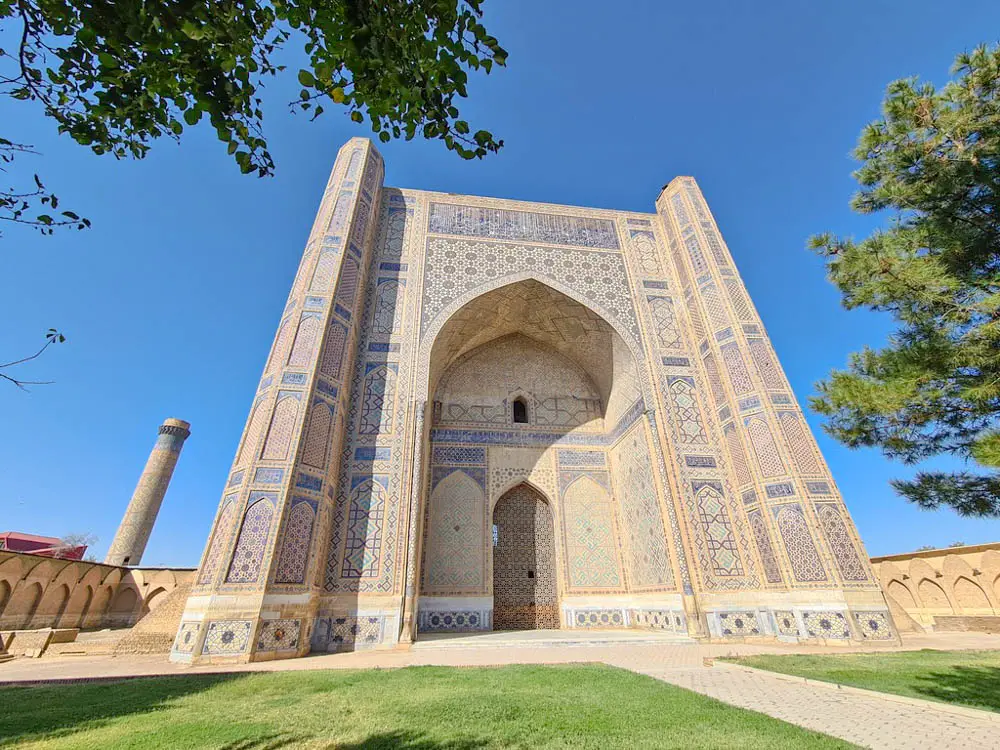
Unfortunately, the mosque collapsed in an earthquake in 1897, and reconstruction began in the 1970s under the Soviets. Nowadays, the renovation work is still ongoing.
Amir Timur Mausoleum Gur-e-Amir
The astonishing mausoleum of Amir Timur is one of the most stunning places in Samarkand. It is known as Gur-e-Amir, in Persian means “Tomb of the King”. It’s the where Amir Timur, founder of the Timurid Empire, and some of his family are buried.
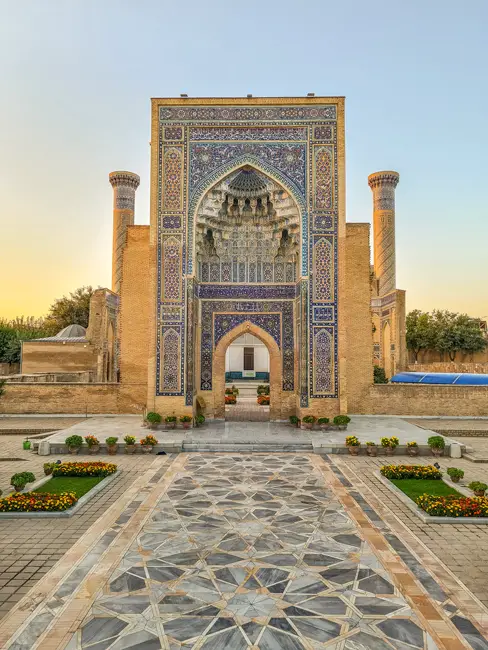
The Gur-e-Amir was completed in 1404 and was originally intended to be the tomb of Timur’s grandson. But when Timur died unexpectedly in 1405 he was interred there. Originally, he was meant to be buried in his hometown of Shakhrisabz.
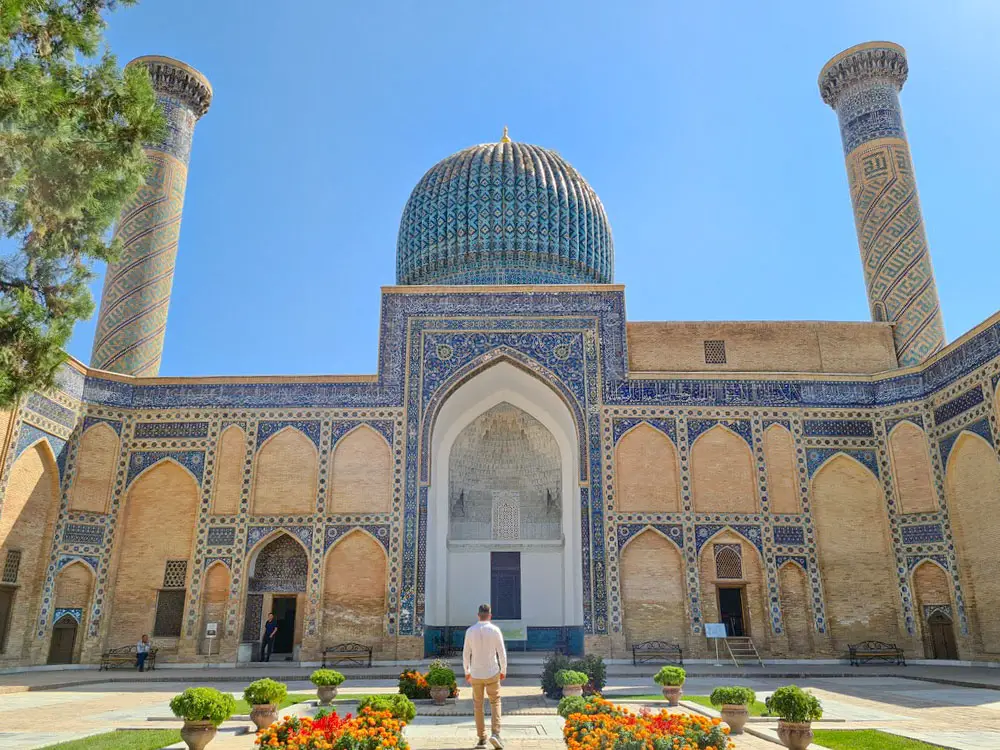
The building is a real masterpiece of Central Asian Architecture. It is impressive both outside and inside. The gold and blue ceilings and walls are very mesmerizing. It is definitely a must see when visiting Samarkand. The best time to visit Gur-e-Amir is in the early morning or late afternoon.
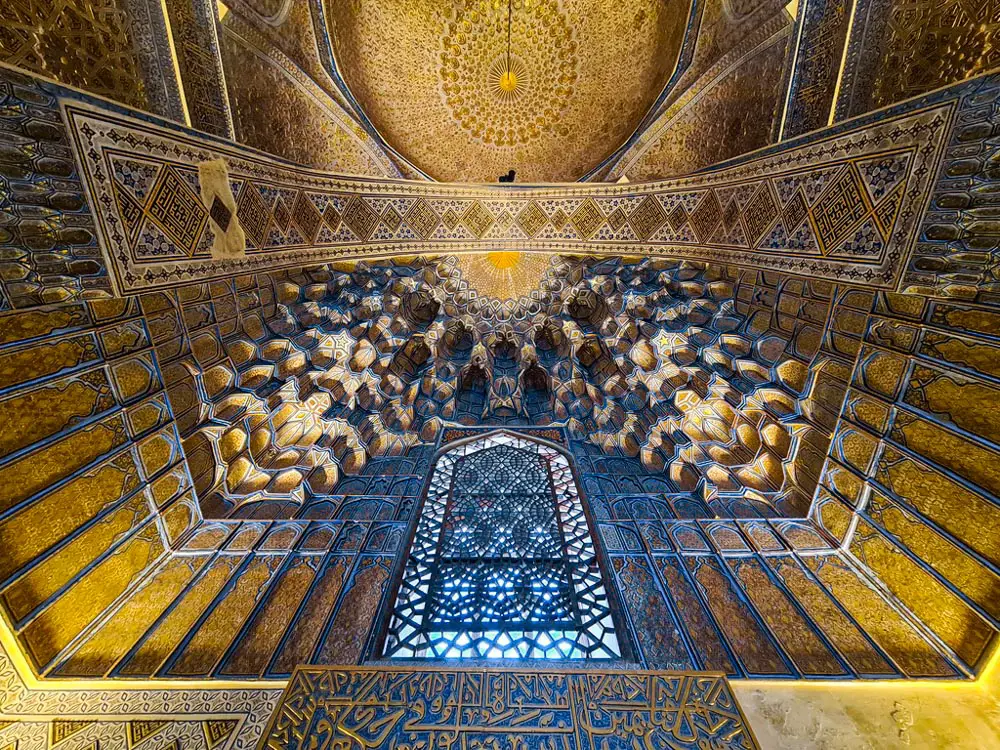
Mausoleum Rukhabad
Mausoleum Rukhabad is one of the first edifices erected during the reign of Amir Timur. It was built over the grave of Islamic theologian and mystic Sheikh Burhaneddin Sagaradzhi. The mausoleum is reputed to be the oldest stone building in Samarkand.
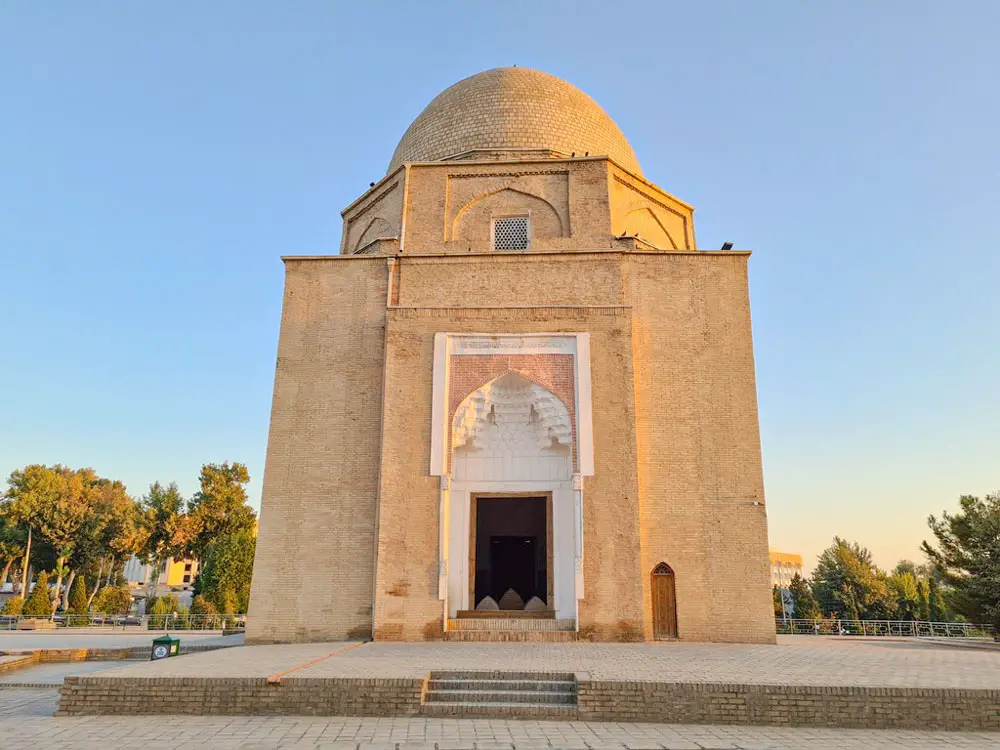
Hazrat Khizr Mosque
The original Hazrat Khizr Mosque was built in the 7th century, making it one of the oldest mosques in the world. It was burned down in the 13th century, but like most other mosques in Samarkand, it was rebuilt several times. It is located to the left of the former Uzbekistan president, Islam Karimov’s mausoleum. The best part of the mosque is visible from the street, so you don’t have to pay entrance fee.
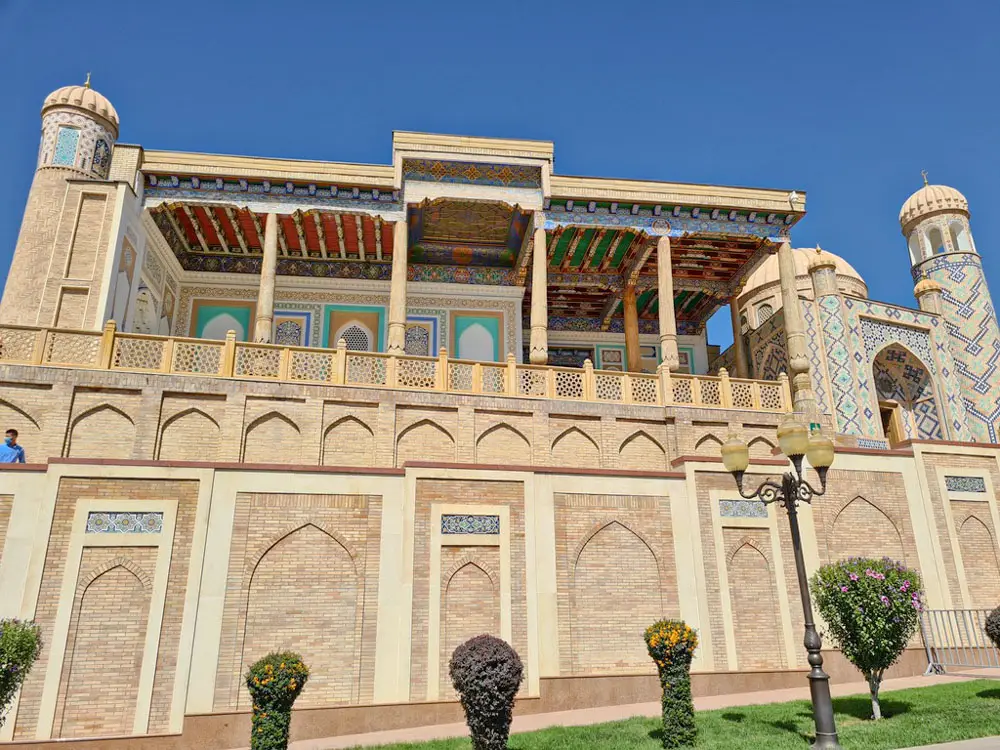
Shah-i-Zinda Necropolis Complex
Shah-i-Zinda is one of the most popular places to visit in Samarkand. It is a sacred necropolis, includes mausoleums and other ritual buildings. The name Shah-i-Zinda means “Tomb of the Living King”, which refers to a myth that Qutham ibn Abbas, a cousin of the Prophet Muhammad, is buried here. The legend says that Qutham ibn Abbas brought Islam to this region in the 7th century.
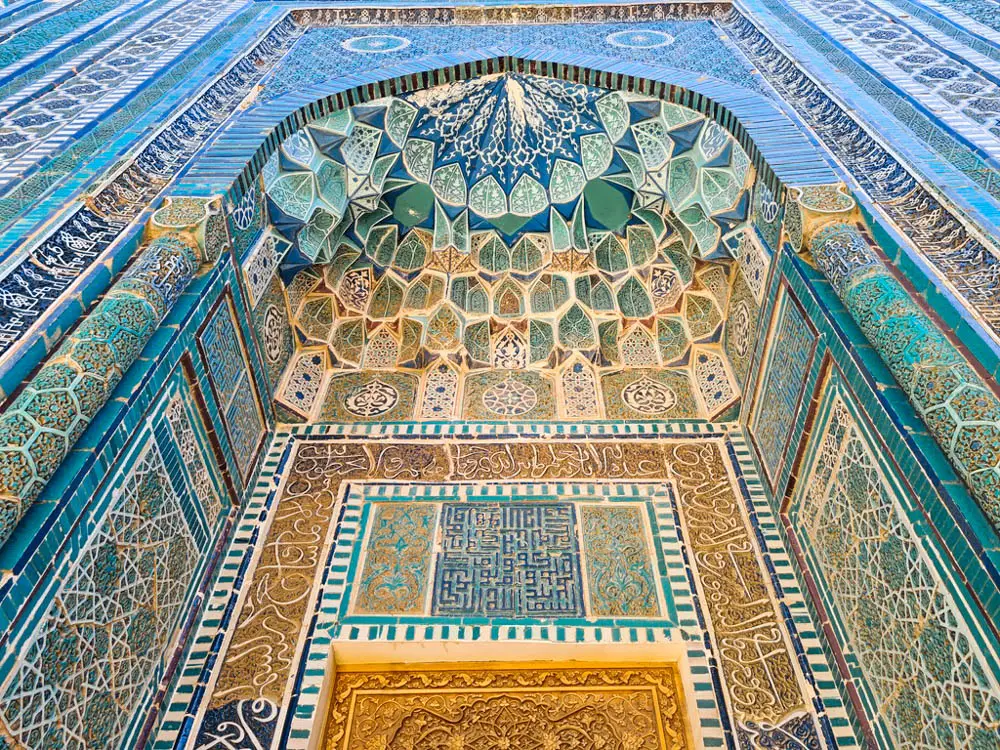
Most of the mausoleums date back to the 14th to 15th century, although some of the buildings are from 11th century. The ritual buildings are grouped along a magnificent narrow medieval street. Many royals and other noble people are buried there.
The blue tilework on the exteriors of some of the tombs are really stunning with some of the interior tilework and mosaics jawdropping. Shah-i-Zinda Necropolis has been controversially repaired and restored, so a lot of the mosaic tilework you see there today is not original.
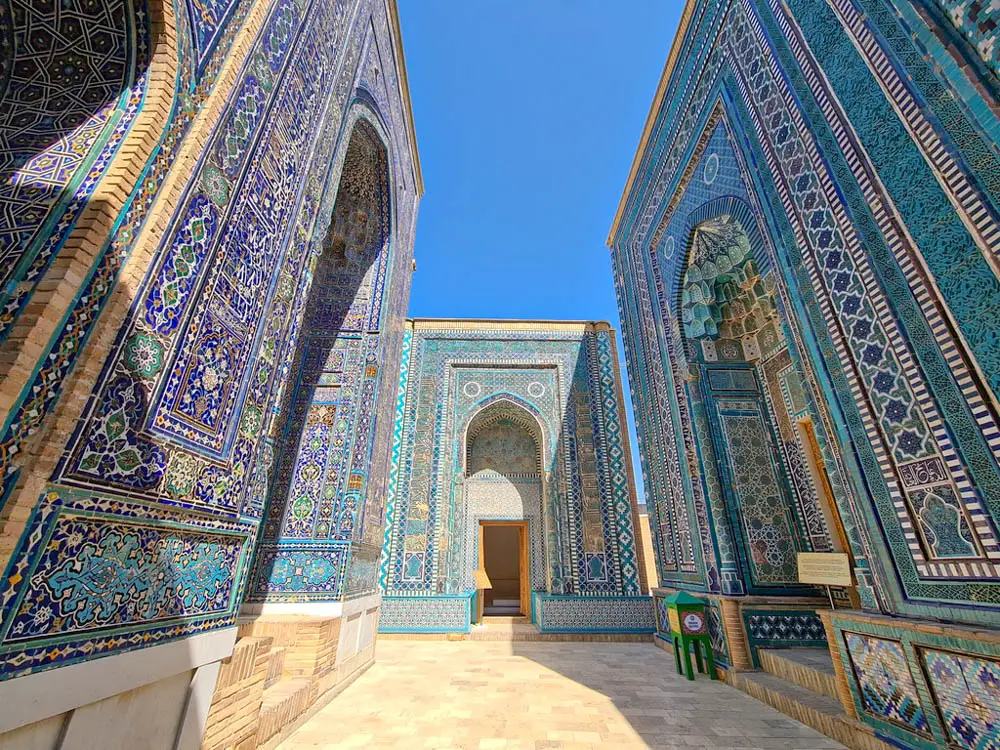
Don’t forget that Shah-i-Zinda is a sacred place where many local visitors come to pray so please be respectful. Make sure to wear suitable clothing.
Ulugh Beg Observatory
The Ulugh Beg Observatory was built in 1420s by the Timurid astronomer Ulugh Beg, the grandson of Amir Timur. It was once one of the best observatories in the Islamic world. It is located on top of a hill on the edge of Samarkand. Unfortunately, the observatory was destroyed in 1449 and rediscovered in 1908. Most of the original observatory does not exist anymore but the most important instrument of the observatory is still there: the trench with the lower section of the meridian arc.
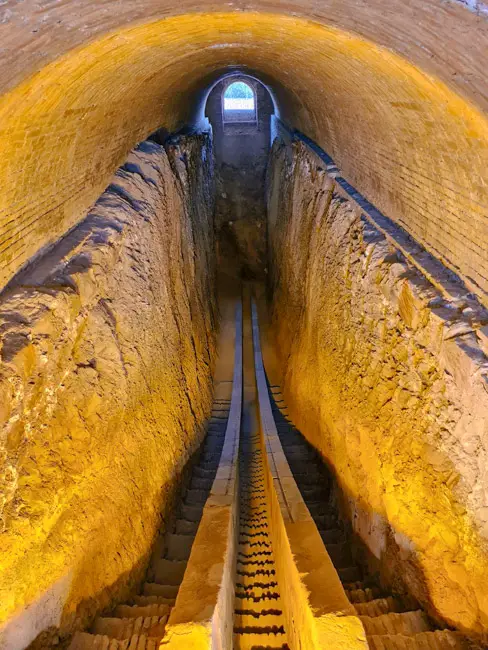
One of Ulugh Beg’s greatest achievements was a remarkably thorough star catalog with over 1,000 stars and their exact locations in the sky. This catalogue was created 200 years before telescopes even existed. Ulugh Beg also calculated the exact length of an year to 365 days, 6 hours, 10 minutes and 8 seconds which is only off by less than a minute to our current calculations.
Today, the Ulugh Beg Observatory is a very small museum that shows exhibits about his life, discoveries, and a model of the ancient observatory.
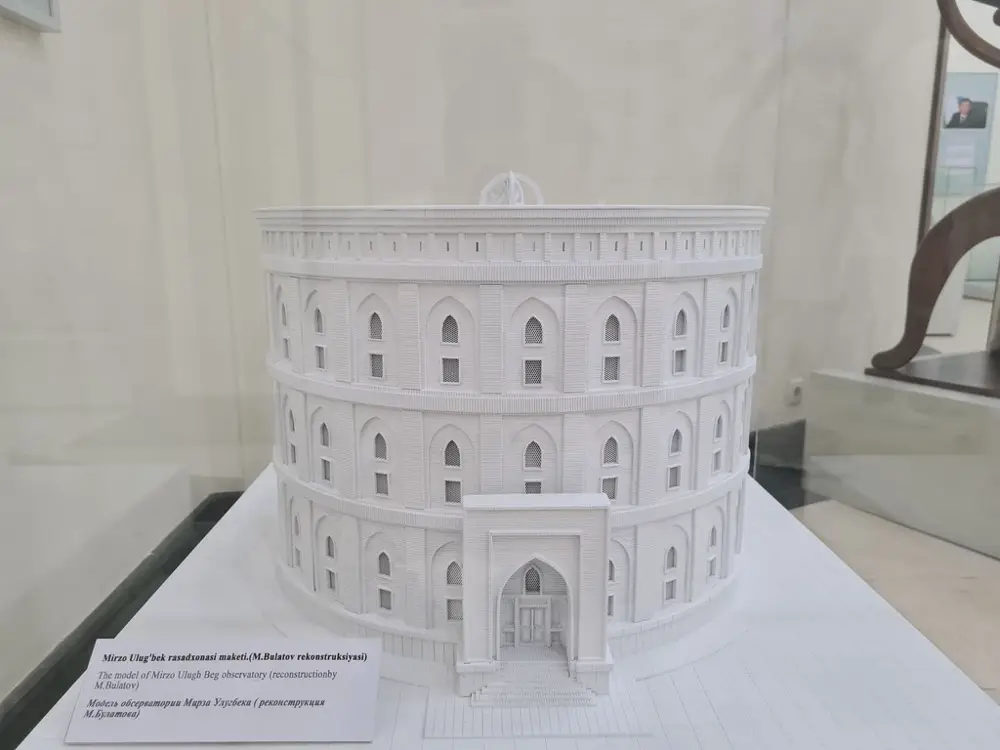
Take a day trip to Shakhrisabz
Shakhrisabz is a popular day trip from Samarkand as it is just 88 km south of the city. It was founded more than 2,700 years ago, and it is known as the birthplace of Amir Timur. He built his palace (Ak-Saray Palace) here as he wanted to make the city the capital of his empire instead of Samarkand.
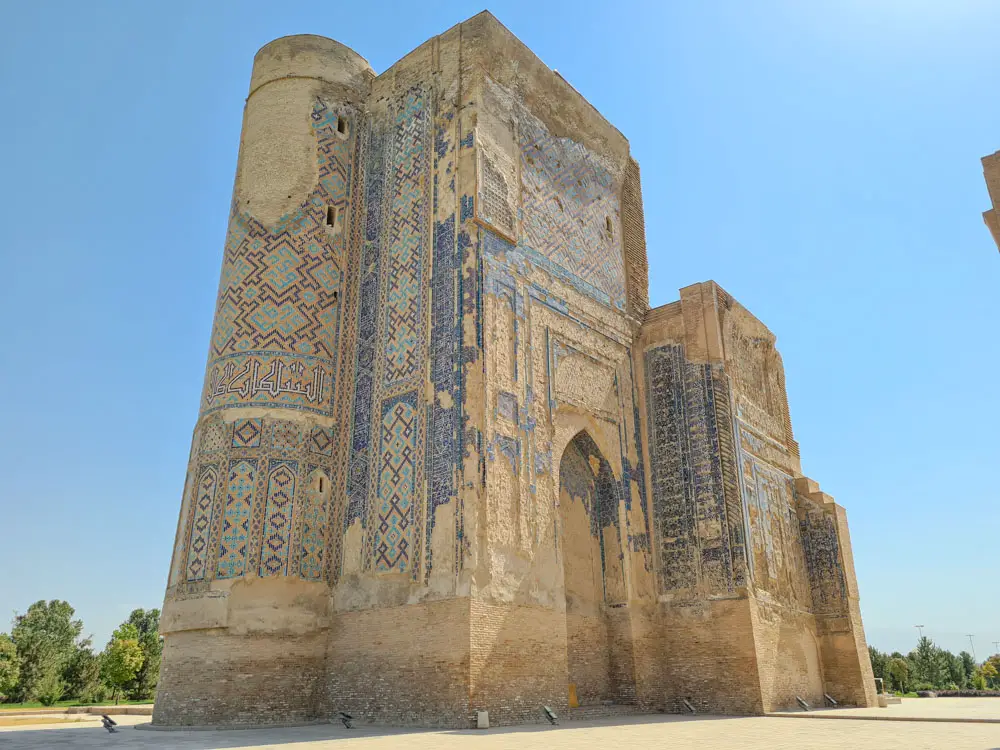
With its impressive monuments from the Timurid dynasty, Shakhrisabz is a UNESCO World Heritage Site.
Is Samarkand Worth Visiting?
Samarkand is definitely worth visiting! Samarkand is undoubtedly one of the most beautiful cities in Uzbekistan. It boasts with a rich history, culture, and impressive monuments.
How many days do you need in Samarkand?
I highly recommend spending 3 days in Samarkand. You need 2 full days to be able to visit all of the best places in Samarkand and 1 full day to visit Shakhrisabz.
Best time to visit Samarkand
I highly recommend going either in spring (April and May) or autumn (September to November). I went in September and the temperature was over 30ºC.
Where to stay in Samarkand?
There are plenty of hotels and guesthouses in Samarkand for every kind of budget. The best area to stay is in the city center near Registan.
Booking.com